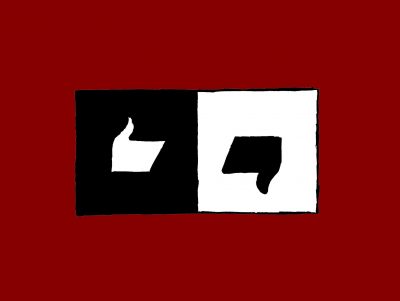I don’t really take the label of being “chronically online” as an insult. There is something poetic about experiencing first-hand the shifts in the online world’s attitude towards really anything.
Being “chronically online” is a term used to describe people who spend too much on the internet, to the point that it messes with their perspective on reality.

One moment everyone is advertising their 1000-piece Squishmallow collection, and the next, they are harassing Charli D’amelio for showcasing her copious Squishmallow collection. One moment, everyone is criticizing Billie Eilish for queerbaiting, and for a video that resurfaced where Eilish sings a song with an Asian slur and uses African American Vernacular English, or AAVE, but the next moment everyone was living for the second half of “Happier than Ever.”
Social media is a wild ride. Seriously though, what’s up with that?
I’m not here to add my two cents on the great-void topic that is cancel culture, but I am concerned about what seems to be a lack of moral strength among the general social media user population.
I’m well aware that flip-flopping on issues isn’t just reserved for artists, but there is something so particularly irksome about when someone will tell me, “Yeah, like I think they are the worst person to have ever walked the planet, but this one song is just so good.”
It’s even worse when someone performatively called out the artist for being problematic on social media but then proceeded to use that artist’s music in their newest Tiktok. Are we not all aware of how important TikTok has become to the music industry?
If you really don’t want to give an artist a platform because their actions don’t align with your beliefs, then why in the hell would you use their music on a platform that can blow it up instantaneously? Something about that doesn’t sit right with me. If you have so many moral objections to an artist, how can you so easily listen to their new album?
Look at “Lost Cause,” Eilish’s music video that came out in early June. The video initially saw praise, but soon the overarching reaction from communities on TikTok and Twitter accused Eilish of queerbaiting her audience.
People consequently jumped on their social media to make sure they were on the “right side of history” and told their followers that they would never listen to Eilish ever again.
The situation sparked a conversation about what falls into the category of queerbaiting — a great conversation to have. Still, I’m going to guess most people who “canceled” Eilish didn’t really sacrifice anything or stop listening to her music. Instead, they posted their performative 60-second TikTok bashing her or typed their performative 280 character tweet criticizing her and then unplugged to listen to “Bad Guy” for the 100th time.
I think that is my biggest issue: people will take a harsh stance, and I can never tell if it is genuine. Clearly it isn’t since you are still giving them your streams and support, but then why make the very public stance in the first place?
Not only does this attitude scream trend-follower, but it can be really invalidating for people who were actually impacted by what a problematic artist may have said or did. Potential victims of the artist’s actions may feel like they have support from the social media sphere. But as soon as new music is released, the cycle goes into the “forgive and forget stage” and that support just vanishes.
So, listen, I get that social media can be scary, especially when you see everyone talking about a hefty topic. But jumping onto the bandwagon to then ultimately recant everything you previously said isn’t the best option.
Sure, you might want to participate in the conversation so that you don’t seem ignorant. But I promise you that backtracking on your words after Kanye Wests’ new “Donda” album dropped is much more ignorant. So, let me offer some quick advice on things you can do instead of jumping on the internet to show your followers your lack of morals.
First, when controversy explodes, take a step back and assess the situation. Read about what happened. If you don’t understand some of the concepts, then research them. The 60 seconds you were planning on using for your scathing TikTok can best be used to look up what queerbaiting, AAVE or racism is.
Next, if you ever feel pressured to say something online, just say you heard about the news and are educating yourself on the topic. Instead of hopping onto a trend, your followers will still appreciate that you aren’t staying ignorant about what is going on.
Finally, suppose you still plan on listening to the artist after doing your research and re-examining your morals. In that case, that’s totally fine, but be aware that some people might unfollow you, disagree with you or totally hate you. Hey, at least you aren’t a hypocrite.























































































































